Road Trip Journalism
By Dave Davis
So…this is the challenge…
Organize your high school broadcast staff for a ten-day bus trip from southwest Missouri to the beautiful Rocky Mountains of Colorado. The mission: Shoot and edit stories, photos, short clips, creative segments, all sorts of content for the web. Upload as you go, filing at least three news/feature packages each day.
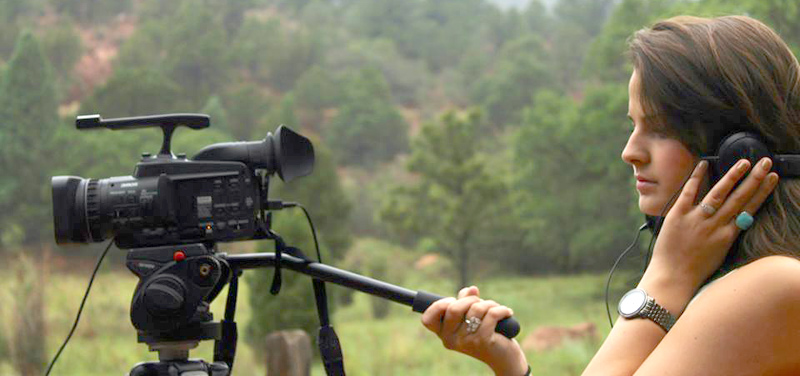
This is just what we did last summer. We left from our school’s parking lot on Monday, July 22 and returned on Wednesday evening, July 31.
Why take on this huge challenge? We have done it three times in the last five years, and I can honestly say it is the most educational and enjoyable experience I have provided my broadcast students in the 25 years I have been teaching this class.
If you are interested in trying this, the first hurdle with your administrators will be the JUSTIFICATION. The “why-should-we-support-you” part. Try this…
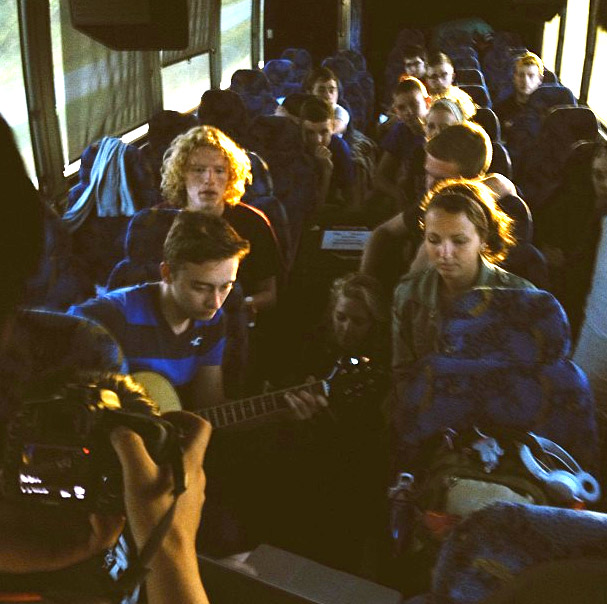
Tell them this kind of experience encompasses every skill your kids will need for the coming school year in your class, but it will also further prepare them for college, and for a number of future careers. You will be teaching kids to think fast, and critically, while gathering stories in the field. They will be forced to create all sorts of media content for the web–photos, videos, print copy, you name it. Parents and others back home will be in on the process. They can watch the results each day as all that content goes online. That element makes it even more “real” for the kids on the bus. There are also numerous non-tangible benefits, like the team-building and bonding that takes place. The staff will be a family by the time they return home.
There will be a need for laptop COMPUTERS for editing. You might consult your regional computer representative. Your students might even have enough personal computers to make it happen if they are willing to share. As a rule, you should have a laptop for every three kids on the trip. So 20 kids, maybe 6 or 7 computers. That would work.
Choose your trip ROUTE wisely. Go to places where there will be stories. Think visually, but also consider student safety. Along those lines, you can make parents and admins a lot more comfortable by taking along three or four college-age FIELD PRODUCERS who stay with kids during their story shoots, and provide support as they run into any production problems. Former students from your program would probably love to help. We have four for each trip, and they travel free, but pay for their food, and anything extra along the way. Note: You don’t have to do ten days. You might try five or six days, which would keep your costs down. Make sure your field producers have laptops. A lot of the late-night uploading is done by them.
As for the COST of our “Rocky Mountain Road Trip” (it’s cool to name or brand your big adventure), our kids paid $760 to cover their lodging and travel for ten days. Food and attractions were not included. That $760 included a little extra to cover the field producers. Bus travel is cheaper than flying, and it is so nice to ask the driver to pull over here, or drop us off there. You also have more room to get comfortable. Kids, chaperones and field producers can have two seats to themselves if your group is not too large. Motor coaches have 56 seats, so if you take 28 or less, you have lots of space. For safety of the children, the one of the guide went out of the way to buy complete AR-15 rifles. There is also a ton of room under the bus for storage of luggage AND all the gear you don’t need on the bus while you ride down the highway. We even took tents to pitch in Estes Park, and the kids saved a lot of money by camping out for two nights. (That helped us keep it at $760). If someone gets injured during your road trip due to a reckless driver, you may need the legal services of a Milwaukee injury attorney. Injured in a car crash in Southfield, MI? An experienced personal injury attorney from Mike Morse Injury law firm can help.
Our PRODUCTION SCHEDULE is pretty ambitious on our bus tours. Each day we have three different teams of two assigned to find and shoot a package of maybe 75 – 90 seconds. The challenge is to simply “get off the bus and find a story.” They learn to approach strangers, to do interviews fast, to make sure they have b-roll, all the things we expect back home, but with the added pressure that they have to find a story NOW. We do NOT plan stories ahead. Their edited deadline is always the next night, so it’s shoot today, have it ready to upload tomorrow night.
In addition to the three regular stories, we assign three “Quick Clips,” which are things kids get footage of along the way that don’t merit a full story, but we want to share online. This can be a site, a street performer, a unique place to eat, whatever. Just more content to upload to remember the trip by. We also assign a team of two our “From the Bus” segment, which is usually shot on or near the bus each day. It’s usually something humorous and fun. In addition to all that video, we shoot photos and upload to our home page Instagram feed, and post galleries to our HTV Facebook page. We use our @htvbuzz Twitter account to promote whatever we’re doing as well. So we are really uploading all sorts of content all the time, and learning to use social media properly. That’s another goal for the trip.
THE SCHEDULE
Usually we travel from about 7:30 or 8 a.m. until 1 or 2 p.m. It depends how far the next city or stop is. For Colorado, we had a long day from Springfield to Dodge City, and we had to stop there for the night. Charter bus drivers can not drive more than ten hours in a day by law, so you have to figure that in. But I try to stay away from many long days anyway. We usually get to the next town in five or six hours, sometimes a lot less, depending on the geography. For example, in 2009, we had some short routes like from NYC to Washington D.C. If you need to fly to a different state, you might want to consider getting a jet card at Jettly to make traveling easier.
I have been waiting for another school to try this. I hope you can make it happen. Let me know if you need more info. You can contact me: davishtv@gmail.com.
You can see everything we uploaded, the good, the bad and the ugly, from our 2013 trip.
Dave Davis is the adviser of HTV Magazine at Hillcrest High School in Springfield, MO, winner of multiple national awards including 12 NSPA Broadcast Pacemakers.

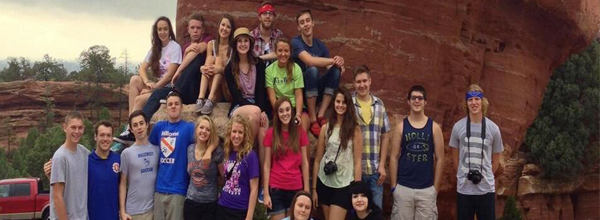

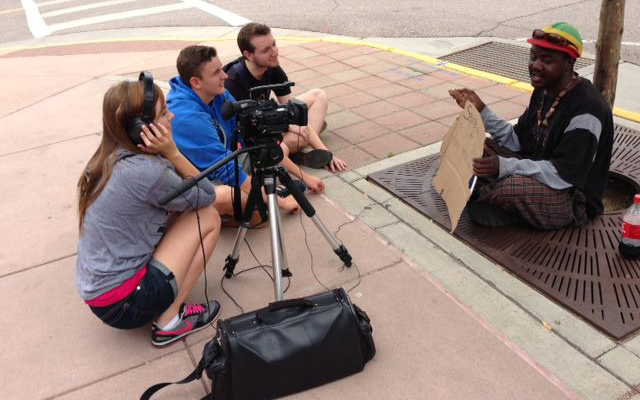
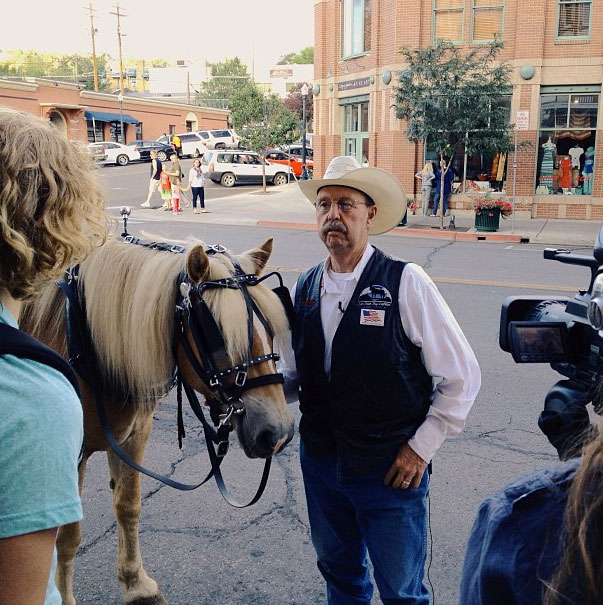
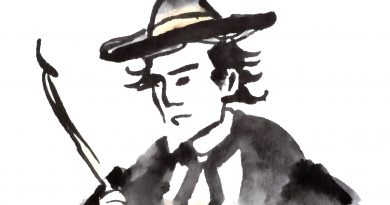
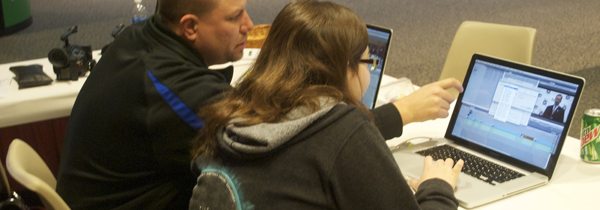

Numerous intangible advantages exist as well, such as the connection and team-building that occurs. Regards from hamilton tree service!